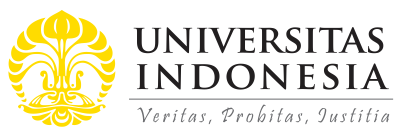Abstract
The exogenous shock of the Covid-19 pandemic disrupted the equity market worldwide, however its impact on the sectoral returns varied. Sectors like aviation, hospitality, and retail were the worst affected because of imposed lockdowns. Contrarily, technology, e-commerce, pharmaceutical, and biotech sectors thrived for the same reasons. The present study evaluates the impact of covid-19 disruption on firms from diverse sectors and examines the moderating effect of firm’s financial characteristics on sectoral performance by establishing a causal relationship between the firm's cumulative abnormal returns generated during the various phases of the pandemic and their sectoral and financial characteristics using data for 317 firms listed on the National Stock Exchange of India. Results indicate that the firm's financial characteristics such as cash holdings, dividends, asset tangibility and analyst coverage moderate the impact of the Covid-19 pandemic on sectoral performance. Findings provide evidence in support of the role of information asymmetry during economic disruptions.
References
Acharya, V. V., Almeida, H., & Campel- lo, M. (2007). Is cash negative debt? A hedging perspective on corporate finan- cial policies. Journal of Financial Inter- mediation, 16(4), 515-554. https://doi. org/10.1016/j.jfi.2007.04.001
Ali, H. (2022). Corporate dividend policy in the time of COVID-19: Evidence from the G-12 countries. Finance Research Let- ters, 46, 102493.mhttps://doi.org/10.1016/j. frl.2021.102493
Amiram, D., Landsman, W. R., Owens, E. L., & Stubben, S. R. (2018). How are analysts’ forecasts affected by high uncertainty? Jour- nal of Business Finance & Accounting, 45(3- 4), 295-318. http://dx.doi.org/10.1111/ jbfa.12270
Akerlof, G.A. (1970). The market for “lemons”: Quality uncertainty and the market mecha- nism. The Quarterly Journal of Economics, 84(3), 488-500.
Azimli, A. (2020). The impact of COVID-19 on the degree of dependence and structure of risk-return relationship: A quantile re- gression approach. Finance Research Let- ters, 36, 101648.https://doi.org/10.1016/j. frl.2020.101648
Bagchi, B., Ghosh, R., & Kanrar, A. (2023). Contagion or interdependence? Evidence from Asian emerging stock markets in times of COVID-19 pandemic. Global Business and Economics Review, 28(2), 155-174. https://doi.org/10.1504/GBER.2023.128855
Baret, S., Celner, A., O’Reilly. A., & Shilling, M. (2020). COVID‐19 potential implica- tions for the banking and capital market sec- tor. Maintaining Business and Operational Resilience. Deloitte Insights.
Bilinski, P. (2021). Analyst information inter- mediation during the COVID-19 pandem- ic. Available at SSRN 3807974. http://dx.doi. org/10.2139/ssrn.38079749
Booth, L. D., & Zhou, J. (2013). Increase in cash holdings: Pervasive or sector-specific? Fron- tiers in Finance and Economics, 10(2), 31- 62. https://ssrn.com/abstract=2558126
Campbell, J. Y., Lo, A. W., MacKinlay, A. C., & Whitelaw, R. F. (1998). The econometrics of financial markets. Macroeconomic Dynam- ics, 2(4), 559-562.
Chakraborty, B., Chatterjee, M., & Bhattacha- rjee, T. (2022). Impact of analyst report on the behavior of retail investors: a study dur- ing COVID-19 in India. Journal of Finan- cial Reporting and Accounting. https://doi. org/10.1108/JFRA-10-2021-0310
Chang, C. P., Feng, G. F., & Zheng, M. (2021). Government fighting pandem- ic, stock market return, and COVID-19 virus outbreak. Emerging Markets Fi- nance and Trade, 57(8), 2389-2406. 10.1080/1540496X.2021.1873129
Danquah, R., Nelson, S. K., Nweze, C. N., Sumo, P. D., Achaa, L. O., & Arhin, I. (2023). Performance of the African stock market amid COVID-19 global health crisis: empir- ical analysis using four events. Global Busi- ness and Economics Review, 28(2), 134-154. https://doi.org/10.1504/GBER.2023.128852
D’Mello, R., & Ferris, S. P. (2000). The in- formation effects of analyst activity at the announcement of new equity issues. Fi- nancial Management, 78-95. https://doi. org/10.2307/3666363
Drobetz, W., & Grüninger, M. C. (2007). Cor- porate cash holdings: Evidence from Swit- zerland. Financial Markets and Portfo- lio Management, 21, 293-324. https://doi. org/10.1007/s11408-007-0052-8
Fernandes, N. (2020). Economic effects of coronavirus outbreak (COVID-19) on the world economy. http://dx.doi.org/10.2139/ ssrn.3557504
Hauser, R. (2013). Did dividend policy change during the financial crisis? Mana- gerial Finance, 39(6), 584-606. https://doi. org/10.1108/03074351311322861
Haque, S. M., & Varghese, M. R. (2021). The COVID-19 impact on corporate leverage and financial fragility. International Mon- etary Fund.
He, P., Sun, Y., Zhang, Y., & Li, T. (2020). CO- VID–19’s impact on stock prices across dif- ferent sectors—An event study based on the Chinese stock market. Emerging Markets Fi- nance and Trade, 56(10), 2198-2212. https:// doi.org/10.1080/1540496X.2020.1785865
Joshi, H. (2019). Cash holding or net debt, what is relevant for Indonesian firms? The South East Asian Journal of Management. https:// doi/org/10.21002/seam.v13i1.10566
Joshi, H. (2021). Cash holding or net debt: What matters for firms’ financial policies? Evidence from India. Indian Journal of Fi- nance, 15(2), 8-21. https://doi.org/10.17010/ ijf/2021/v15i2/157637.
Joshi, H. (2022). Do Precautionary Cor- porate Cash Holdings Help During the Economic Shocks? Evidence from the COVID-19 Pandemic. FIIB Business Re- view, 23197145221110286. https://doi. org/10.1177/23197145221110286
Krieger, K., Mauck, N., & Pruitt, S. W. (2021). The impact of the COVID-19 pandem- ic on dividends. Finance Research Let- ters, 42, 101910. https://doi.org/10.1016/j. frl.2020.101910
Lei, J., Qiu, J., & Wan, C. (2018). Asset tangi- bility, cash holdings, and financial develop- ment. Journal of Corporate Finance, 50, 223- 242. http://dx.doi.org/10.2139/ssrn.2864500
Mazur, M., Dang, M., & Vega, M. (2021). CO- VID-19 and the march 2020 stock market crash. Evidence from S&P1500. Finance research letters, 38, 101690. 10.1016/j. frl.2020.101690
Narayan, P. K., Gong, Q., & Ahmed, H. J. A. (2022). Is there a pattern in how COVID-19 has affected Australia’s stock returns? Ap- plied Economics Letters, 29(3), 179-182. https://doi.org/10.1080/13504851.2020.186 1190
Opler, T., Pinkowitz, L., Stulz, R., & William- son, R. (1999). The determinants and impli- cations of corporate cash holdings. Journal of financial economics, 52(1), 3-46. https:// doi.org/10.1016/s0304-405x(99)00003-3
Pastor, L., & Veronesi, P. (2012). Uncertainty about government policy and stock pric- es. The journal of Finance, 67(4), 1219- 1264. http://www.jstor.org/stable/23261358
Qin, X., Huang, G., Shen, H., & Fu, M. (2020). COVID-19 pandemic and firm-level cash holding—moderating effect of goodwill and goodwill impairment. Emerging Markets Fi- nance and Trade, 56(10), 2243-2258. https:// doi.org/10.1080/1540496X.2020.1785864
Sehgal, S., Pandey, P., & Saini, S. (2018). Dy- namics of short and long term debt mar- ket integration in the South Asian econo- mies. Theoretical Economics Letters, 8(11), 2416-2443. 10.4236/tel.2018.811157
Shehzad, K., Xiaoxing, L., & Kazouz, H. (2020). COVID-19’s disasters are perilous than Global Financial Crisis: A rumor or fact? Finance research letters, 36, 101669. https://doi.org/10.1016/j.frl.2020.101669
Shen, H., Fu, M., Pan, H., Yu, Z., & Chen, Y. (2020). The impact of the COVID-19 pandemic on firm performance. Emerg- ing Markets Finance and Trade, 56(10), 2213-2230. https://doi.org/10.1080/154049 6X.2020.1785863.
Simutin, M. (2010). Excess cash and stock re- turns. Financial Management, 39(3), 1197- 1222. https://ssrn.com/abstract=1327575
Sivaprasad, S., & Muradoglu, Y. G. (2009). An empirical analysis of capital structure and abnormal returns. Cass Business School Research Paper. http://dx.doi.org/10.2139/ ssrn.948393
Subramaniam, V., Tang, T.T., Yue, H., & Zhou, X. (2011). Firm structure and corporate cash holdings. Journal of Corporate Finance, 17(3), 759-773. https://doi.org/10.1016/j. jcorpfin.2010.06.002
Sutrisno, B. (2021). COVID-19 and Corporate Cash Holdings in Indonesia. Indonesian Financial Review, 1(1), 11-17. https://doi. org/10.55538/ifr.v1i1.2
Szczygielski, J. J., Charteris, A., Bwanya, P. R., & Brzeszczyński, J. (2022). The impact and role of COVID-19 uncertainty: A global industry analysis. International Review of Financial Analysis, 80, 101837. https://doi. org/10.1016/j.irfa.2021.101837
Tawiah, B., & O’Connor Keefe, M. (2022). Cash holdings and corporate investment: Evidence from COVID-19. Review of Cor- porate Finance, Forthcoming. http://dx.doi. org/10.2139/ssrn.3712767
Xu, L. (2021). Stock Return and the COVID-19 pandemic: Evidence from Canada and the US. Finance Research Letters, 38, 101872. https://doi.org/10.1016/j.frl.2020.101872
Zheng, M. (2022). Is cash the panacea of the COVID-19 pandemic: Evidence from cor- porate performance. Finance Research Let- ters, 45, 102151. https://doi.org/10.1016/j. frl.2021.102151
Recommended Citation
Joshi, Himanshu and Joshi, Bhavya
(2023)
"Moderating Role of Financial Characteristics in Sectoral Performance During the Period of Economic Disruption: Evidence from the Covid-19 Pandemic,"
Indonesian Capital Market Review: Vol. 15:
No.
2, Article 1.
DOI: 10.21002/icmr.v15i2.1163
Available at:
https://scholarhub.ui.ac.id/icmr/vol15/iss2/1












